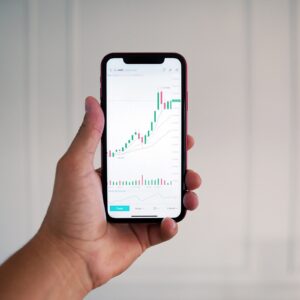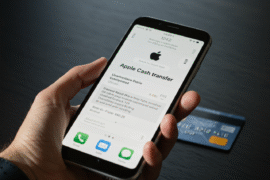This article may contain references to products or services from one or more of our advertisers or partners. We may receive compensation when you click on links to those products or services. Nonetheless, our opinions are our own.
The information presented in this article is accurate to the best of our knowledge at the time of publication. However, information is subject to change, and no guarantees are made about the continued accuracy or completeness of this content after its publication date.

Updated by Albert Fang
A good question to ask if you’ve decided to work with SoFi Investments is which of their financial services you should concentrate on? Clients can benefit from SoFi’s wide variety in financial services, but which service is most beneficial depends on their own personal financial needs and money management style. Is a high-yield savings account a better option than investing? SoFi Checking and Savings vs SoFi Invest are two different services that SoFi offers, but which is best? What are the benefits of using a checking and savings account rather than just a debit card? In the sections that follow, you’ll learn more about SoFi Investments and the money tools that account holders can use.
SoFi Checking and Savings
Digital personal finance company SoFi Invest has expanded its product offerings with a savings and checking account after recognizing the needs of its customers. It is possible to earn a 1% annual percentage rate for those who set up direct deposits with their accounts. There is no monthly fee, or overdraft fees, and there is no minimum balance requirement, as is the case with many banks. Mobile check deposits are permitted. Account holders may use ATM machines around the world. Aside from stock trading, SoFi is trying to position itself as a one-stop shop for all your banking and financial needs by offering these services. SoFi Checking and Savings is a good place to start for young people opening their first account.
SoFi Investing
Initially, SoFi Investments set itself up as a micro-broker that allowed customers and clients to invest in stocks, ETFs, and options from a mobile application. It did not take long for SoFi to expand its financial offerings, but at its heart, it is an investment service. SoFi is widely considered by experts to be a good starting point for beginning investors, requiring no money to open an account, but at least one dollar to begin investing. Clients have the ability to invest in stocks, ETFs, and cryptocurrencies. There are no fees for active trading, although there is a 1.25% fee on crypto transactions. SoFi also offers complementary access to financial planners, and the ability to invest in fractional shares. There’s automated investing available as well.
SoFi Credit Card
SoFi now offers credit cards backed by customer accounts as part of its ongoing effort to become the SoFi Bank for all of its customers’ monetary needs. Customers can earn cash back rewards and pay no annual fee with this credit card. All purchases are eligible for 2% cashback, and customers can use their rewards to pay off student loans and personal loans. SoFi credit card applicants can also earn up to $200 if they open an investment account and a checking and savings account at the same time. SoFi lowers the APR by 1% for responsible customers after 12 on-time payments. The SoFi credit card is considered to be comparable to the Capital One Quicksilver card, and in some cases, even better.
Summary
SoFi Investments is positioning itself to be an attractive option to young and beginning investors who also might be looking for a place to open a checking and savings account that does not come with all the hidden fees and conditions of traditional bank accounts. Acting as the SoFi Bank to these young investors is a wise move by SoFi Invest. The service that someone chooses when opening a SoFi account likely depends on personal needs, but if all of these options seem attractive to the new user, it is possible to earn bonuses by opening all three and making use of them. For the new client who makes use of SoFi services for checking and savings, investing, and credit card needs, access to a variety of bonuses and features is worth considering, especially for the young person just starting out.
FAQ
1. What is needed to open any of the SoFi accounts?
New users must provide proof of identity through a state-issued photo ID, paycheck stubs or W2 tax documents, proof of employment for investment accounts, and bank routing numbers for funding investment accounts initially. Users must also have a valid US mailing address.
2. Who qualifies for a SoFi financial account?
Account holders must be at least 18 years old, a United States citizen or lawful permanent resident residing in the United States with a physical address in the United States, and have a valid Social Security Number.
3. Does SoFi offer Managed Roth IRAs?
It does not, but clients can invest in automated Roth, traditional, and SEP IRAs.

Reviewed and edited by Albert Fang.
See a typo or want to suggest an edit/revision to the content? Use the contact us form to provide feedback.
At FangWallet, we value editorial integrity and open collaboration in curating quality content for readers to enjoy. Much appreciated for the assist.
Did you like our article and find it insightful? We encourage sharing the article link with family and friends to benefit as well - better yet, sharing on social media. Thank you for the support! 🍉
Article Title: SoFi Checking and Savings vs SoFi Invest vs SoFi Credit Card: Which SoFi Account to Open?
https://fangwallet.com/2022/05/29/sofi-checking-and-savings-vs-sofi-invest-vs-sofi-credit-card-which-sofi-account-to-open/The FangWallet Promise
FangWallet is an editorially independent resource - founded on breaking down challenging financial concepts for anyone to understand since 2014. While we adhere to editorial integrity, note that this post may contain references to products from our partners.
The FangWallet promise is always to have your best interest in mind and be transparent and honest about the financial picture.
Become an Insider

Subscribe to get a free daily budget planner printable to help get your money on track!
Make passive money the right way. No spam.
Editorial Disclaimer: The editorial content on this page is not provided by any of the companies mentioned. The opinions expressed here are the author's alone.
The content of this website is for informational purposes only and does not represent investment advice, or an offer or solicitation to buy or sell any security, investment, or product. Investors are encouraged to do their own due diligence, and, if necessary, consult professional advising before making any investment decisions. Investing involves a high degree of risk, and financial losses may occur including the potential loss of principal.
Source Citation References:
+ Inspo












































